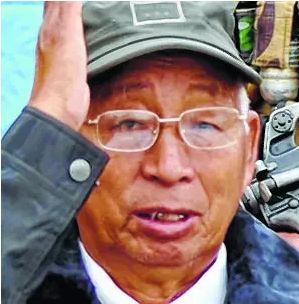 Chairman of the Khaplang faction of the NSCN, SS Khaplang passed away at one of the outfit’s camp today at about 8 pm at Takka in Myanmar, said sources.
Chairman of the Khaplang faction of the NSCN, SS Khaplang passed away at one of the outfit’s camp today at about 8 pm at Takka in Myanmar, said sources.
Reports said that Khaplang passed away due to a D after ailing for many months.
Brigadier Peyong will take over the outfit, following the demise of SS Khaplang, said sources. He was 77.
Born in April 1940 in Waktham village just east of Myanmar’s Pangsau Pass, Shangwang Shangyung Khaplang is the youngest of his 10 siblings and led the newly-formed United Liberation Front of Western South East Asia (UNLFW). UNLFW claimed responsibility of the 4 June, 2015 ambush in Manipur.
SS Khaplang, chief of the Nationalist Socialist Council of Nagaland changed the face of insurgency in the North East.
Hailing from Hemi Naga tribe of Myanmar, Khaplang has two homes — one in China’s Yunan province and one in Myanmar. According to a report in The Indian Express, Khaplang has three sons and a daughter and they are settled far from the rebellion. The seeds of insurgency were sown very early in Khaplang’s life after he witnessed events of the World War II as a child.
According to another article in The Indian Express, Khaplang floated Naga Defence Force in 1964. In 1965, Khaplang went on to become the vice-chairman and then the chairman of Eastern Naga Revolutionary Council. According to the report, Khaplang during this period assisted young recruits to go to China for training and it was then when he grew closer to Thuingaleng Muivah, an MA from Gauhati University.
The two later collaborated and formed one of the strongest factions in North East — Nationalist Socialist Council of Nagaland. The alliance was a strategic step taken by Khaplang so that the rebels from across the Burmese border can easily infiltrate into the Indian territory. And thanks to Khaplang, the main insurgent group was able to build base in the Burmese side.
The outfit became so strong that it was almost running a parallel Government, not only in Nagaland, but also in Manipur and Arunachal Pradesh. But the partnership did not last for too long.
In 1988, the Nationalist Socialist Council of Nagaland (Khaplang) was formed after it broke out from NSCN (Isak-Muivah), Thuingaleng Muivah. “Clan rivalries between the Konyaks of Nagaland’s northernmost Mon district, and the Tangkhul Nagas of Manipur’s Ukhrul district, which dominated the NSCN (IM), is cited as one of the main reasons for the split,” IE reported.
The Khaplang faction’s main demand was independence of Nagaland. Apart from heading NSCN(Khaplang) and UNLFW, Khaplang was also referred as “President” of the ‘Government of the People’s Republic of Nagalim.”
Source: Firstpost



